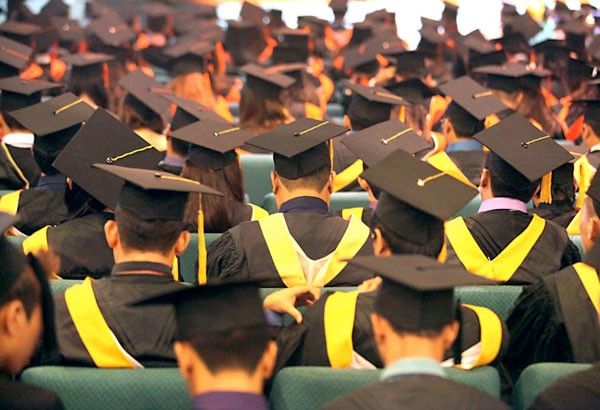Duterte economic team opposes free SUC tuition, favors alternative

MANILA, Philippines— The economic managers of President Rodrigo Duterte are opposed to proposals on free tuition for all undergraduate students, putting forward instead a student assistance fund as a "better alternative."
According to Socioeconomic Planning Secretary Ernesto Pernia, Finance Secretary Carlos Dominguez and Budget Secretary Benjamin Diokno, the proposed free tuition for college students would largely benefit non-poor students who constitute the majority in state universities and colleges (SUCs).
Instead, they are pushing the government to fully fund the Unified Student Financial Assistance System for Tertiary Education (UniFAST).
The president's economic team said that UniFAST would provide a more coherent and comprehensive framework that would address the educational needs of students. In addition, this would also deliver efficiently and effectively government funds to those who needed them the most.
"We recognize that college education is important for Filipinos," Pernia said. "Many employers also prefer college graduates. However, we need to carefully study our options for helping people achieve their aspirations for higher education, considering other needs."
Youth group Anakbayan said in January, however, that the argument against free tuition represents the view of "big businesses and neoliberal-minded officials who are against free tuition and favor the perpetuation of a commercialized and profit-oriented education."
The group said that "the poorest of the poor will be able to afford education once it is brought back to the public and becomes fully funded by the government."
Kabataan paty-list, one of its allies at the House of Representatives, has filed a bill that seeks to make education free in all public education institutions. The bill, if passed, will abolish school fees "except fees related to student activities, including student organizations, student governments and councils, and student publications."
The bill proposes to include the cost of attendance in the annual budgets of SUCs and local universities and colleges.
Hopes for free tuition in SUCs rose last year after the Senate realigned P8.3 billion from the Autonomous Region in Muslim Mindanao budget to cover the tuition of students studying in public educational institutions.
"That's purely for tuition, that's purely to remove tuition from the student expenses," Commission on Higher Education chair Patricia Licuanan said at the time.
'Only 12 percent of students from bottom 20 percent'
The economic managers said that based on the Annual Poverty Indicators Survey in 2014, only 12 percent of SUC students belonged to the bottom 20 percent of the family income classification.
In addition, the economic managers said that tuition did not constitute the biggest share of college education cost.
According to the government's Student Grants-in-Aid Program Poverty Alleviation (SGP-PA), tuition constitutes only one-third (P20,000) of the P60,000 annual cost per student.
The bigger chunk is for living expenses (P35,000 for 10 months) and instructional materials (P5,000).
The economic managers believe that even if free SUC tuition is granted, poor families would still be unable to pay for the remaining costs of college education.
The economic managers said that an across-the-board free tuition policy would result in the exodus of students toward SUCs from private higher educational institutions (HEIs) which would affect the overall quality of graduates because some HEIs perform better than SUCs.
The economic managers also stated that the budgetary support for free tuition would be difficult to sustain.
They said that the estimated 1.4 million students enrolled in SUCs would require P28 billion to cover their total tuition fees.
UniFAST, established in 2014 through Republic Act 10687, provides student financial assistance programs in the form of scholarships, grants-in-aid and student loans for tertiary students. The law also gives deserving students full financing, an arrangement which generally favors the poor.
The economic managers also stressed the advantages of the UniFAST. According to them, under this system there is a clear delineation among its three types of financial aid in terms of objectives and target beneficiaries.
The system is also applicable to both SUCs and private HEIs, has a test-based eligibility requirement and adheres to the standards of the CHED.
"The government should implement its mandate of promoting quality and accessible education within the limits of fiscal prudence, and with the use of appropriate tools and targeting mechanism," the economic team of the government explained.
- Latest
- Trending


























